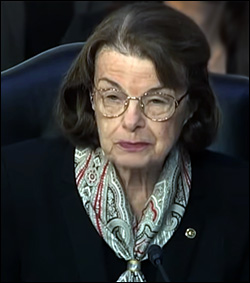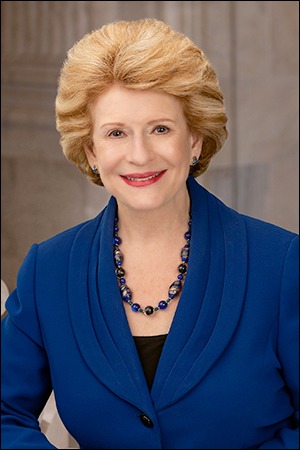By Jim Ellis — June 8, 2022
Primary Results

Wealthy developer, former Republican and now Independent Rick Caruso surprised many by claiming first place in the open Los Angeles mayor’s race last night.
Wealthy developer, former Republican and now Independent Rick Caruso surprised many by claiming first place in the open Los Angeles mayor’s race last night; he topped US Rep. Karen Bass (D) by five percentage points. Far left San Francisco District Attorney Chesa Boudin was recalled with 60 percent of the vote, and the down-ballot congressional results look to yield some interesting general election campaigns.
On positive notes for the GOP, former state Assemblywoman Connie Conway successfully won the special congressional election in the 22nd District and will assume office immediately after race certification to fill the unexpired portion of resigned Rep. Devin Nunes’ final congressional term. Additionally, Rep. Mike Garcia (R-Santa Clarita), in a district that was made more Democratic through redistricting, finished substantially ahead at this point, 50-35 percent, over former state Assemblywoman Christy Smith (D), the opponent he has twice beaten including a 333-vote win in 2020. An estimated quarter of the vote remains to be added, so these numbers will change at least to a degree, but the pair will again advance into the general election.
Two Central Valley seats have very low vote totals reporting, but both are interesting. In the most Democratic district in the nation that a Republican represents, Rep. David Valadao (R-Hanford) badly trails state Assemblyman Rudy Salas (D-Bakersfield), 47-26 percent, but with less than 15,000 votes counted. Surprisingly, Rep. Josh Harder (D-Turlock) holds only a 36-29 percent edge over San Joaquin County Supervisor Tom Patti (R), but with less than 14,000 votes tabulated. In the neighboring new 13th District, Republican farmer/businessman John Duarte appears positioned to capture second place and is running just two percentage points behind state Assemblyman Alex Gray (D-Merced) with over half the votes counted. This appears to be a competitive race come the fall.
In Orange County, incumbent Rep. Young Kim (R-La Habra) appears to be placing second in the jungle primary but will advance to the general election. Rep. Michelle Steel (R-Orange County), after trailing most of the night, did place first in her new 45th CD and advances into the general election against Community College Trustee Jay Chen (D) as expected. Former state Assemblyman Scott Baugh, who was thought to be a strong Republican challenger to Rep. Katie Porter (D-Irvine) in the coastal Orange County seat, saw the incumbent top 50 percent, some 20 points ahead of him, meaning this race may not be as competitive in November as once predicted.
The California counting, with almost all votes coming in through the mail and ballots accepted after the election will drag on for a period of weeks, so we won’t have final totals for some time.
Iowa: Admiral Franken Wins — Early in the election cycle, it appeared that former US Rep. Abby Finkenauer had the inside track to the Democratic US Senate nomination, but such was not to be as retired Navy Admiral Michael Franken easily defeated her by a 55-40 percent count to claim the party nomination. He will face Sen. Chuck Grassley (R) who won a landslide re-nomination for what would be an eighth six-year term.
The governor and House races, most of which were unopposed last night, all turned out as predicted. Gov. Kim Reynolds (R) runs for a second full term and will square off against Democratic marketing consultant Deidre DeJear. As expected, state Sen. Zach Nunn (R-Altoona) was an easy Republican primary winner in the state’s 3rd District. He will now oppose two-term Rep. Cindy Axne (D-Des Moines) who has yet to reach 50 percent in any of her campaigns. Freshmen Reps. Mariannette Miller-Meeks (R-Ottumwa) and Ashley Hinson (R-Marion/Cedar Rapids) will both defend their competitive seats each against a pair of sitting state legislators, state Rep. Christina Bohannan (D-Iowa City) and state Sen. Liz Mathis (D-Hiawatha), respectively.
Mississippi: Incumbents Forced to Runoffs — It appears two Mississippi GOP congressional incumbents, Reps. Michael Guest (R-Brandon) and Steve Palazzo (R-Biloxi) will have to run in a secondary election to win re-nomination, an ominous sign for any southern incumbent. Because a majority of the voters chose a candidate other than the incumbent, a runoff vote will occur on June 28 between the top two finishers. Therefore, both Reps. Guest and Palazzo face difficult re-nomination prospects at the end of this month.
Rep. Guest and Navy Reserve officer Michael Cassidy will apparently battle in the 3rd District runoff election though about 15 percent of the estimated turnout is still outstanding. The two candidates are both hovering around the 47 percent mark, so it is unlikely that enough votes remain outstanding to allow one of the two to reach 50 percent. Challenger Cassidy labeled the incumbent as being too moderate, citing his vote to create the January 6 Commission, among other actions to justify his attack. Six-term Rep. Palazzo is under an ethics investigation for using campaign funds for personal use, and managed to only break 30 percent. His opponent looks to be Jackson County Sheriff Mike Ezell, who is clinging to second position but with almost a quarter of the votes still to be tabulated. Businessman Clay Wagner lags just over 2,000 votes behind Ezell in third position.
Montana: Tight Race Favoring ex-Rep. Zinke — In a surprisingly tight congressional race for Montana’s new western congressional district, a seat the state gained because of its strong population growth in national reapportionment, former US Interior Secretary and ex-Congressman Ryan Zinke appears to be successfully returning to the House but in a very close margin. At this writing, Zinke leads former state senator and frequent statewide candidate Al Olsewski by just about a percentage point as the final votes are being tabulated. The small margin will probably hold meaning that Zinke will become the new 1st District’s official Republican standard bearer. The final primary result should pave the wave for him to complete his political comeback attempt this November.
New Jersey: Key Re-Match Set — Without a statewide race on the ballot in 2022, New Jersey appears politically quiet this year. The top race in the state is a 7th District re-match between Rep. Tom Malinowski (D-Rocky Hill) and former state Sen. Tom Kean, Jr. (R). The two battled to a 51-49 percent finish two years ago. Kean easily defeated a crowded Republican field to earn another shot at Malinowski who faces his Republican opponent in a less Democratic district post-redistricting. The seat now trends Republican, thus making this one of the GOP’s top conversion opportunities in the nation.
New Mexico: Ronchetti Wins Big — Former Albuquerque TV weatherman Mark Ronchetti, who held Sen. Ben Ray Lujan (D) to a closer-than-expected 52-46 percent win in 2020, romped to a win in the Republican governor’s primary topping the 58 percent mark after failing to qualify for the ballot through the Republican nominating convention. The Ronchetti win sets up a competitive battle with Gov. Michelle Lujan Grisham (D) in the fall. The governor was unopposed for re-nomination last night.
In the gerrymandered southern 2nd District, freshman Rep. Yvette Herrell (R-Alamogordo) will face Las Cruces City Councilman Gabe Vasquez (D) in a district that now leans Democratic with the inclusion of part of Albuquerque. This will be a highly competitive general election campaign and a must-win for Republicans if they are to capture the House majority as many predict.
South Dakota: Incumbents Score Big Wins — In an unsurprising result, both Sen. John Thune (R) and Gov. Kristi Noem (R) scored landslide Republican primary victories with each topping the 70 percent mark in voter support. In the state’s at-large congressional primary, second-term Rep. Dusty Johnson (R-Mitchell) defeated Rapid City state Rep. Taffy Howard with a 59-41% spread to win re-nomination for a third two-year term. All three of the statewide GOP incumbents now become prohibitive favorites for re-election in November.








